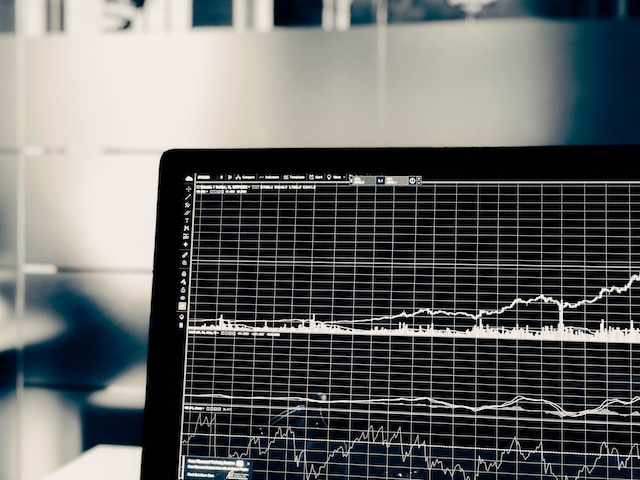What is the state of blockchain in healthcare? To answer that question, let’s first step back and look at how the blockchain is used for a wide range of purposes. In the past year or so, much of the current chatter around blockchain is around NFTs (non-fungible tokens) used on a consumer level. However, the blockchain’s true potential comes in powering and securing many mundane-but-critical aspects of our lives. The blockchain has already been explored for things like voting and retail.
For healthcare in particular, a blockchain’s inherent benefits of permanence, accuracy, and accessibility make it a very practical choice to power a world of digital records and connected devices. From faster, easier individual medical records to data-driven hospital staffing decisions, the healthcare industry has many valuable use cases for a blockchain — and, in many cases, existing practical enterprise blockchain options for bringing it to reality.
Why use Blockchain for Healthcare?
While blockchain technology may still feel nebulous to some, its basic functionality is actually quite simple to understand. In a blockchain, individual blocks of data chain together sequentially on a ledger and each block relies on the previous one for sequential permanence in identification. The ledge is evaluated and audited by a public network of users known as nodes. This combination of data permanence and transparency creates a constant verification process to ensure accuracy. And because blocks use one-way encryption, data can be verified by nodes while protecting proprietary or sensitive data.
All of that makes it ideal for the healthcare industry, where privacy and accuracy are key and fraudsters are prevalent. With that in mind, let’s take a closer look at just how the blockchain can work for healthcare.
Five Heathcare Use Cases For Blockchain
In recent decades, the healthcare industry has made a gradual shift to embracing the digital revolution. This has rolled out on a number of levels, from practical record keeping to new and innovative ways to track device data. This surge in data has spotlighted the importance of consolidating accurate and immutable records, allowing the most recent data to transmit quickly on demand while staying secure and protecting patient privacy. These five use cases highlight the powerful and flexible capabilities of using a blockchain for healthcare.
- Medical Records: In an era of electronic medical records, the blockchain can be the ideal platform for this aspect of the healthcare industry. Medical records require long-term accuracy and accessibility, as an individual’s record needs to be able to transfer easily between providers, insurance companies, and specialists. With a blockchain, healthcare records can be securely updated in near-real time, with updates visible to interested parties.
- Insurance: Medical records are often intertwined with insurance, so getting both in the digital space immediately enables connectivity and accessibility, which lead to greater accuracy and interoperability — and that ultimately delivers a better experience for the customer/patient. In particular, a blockchain can address a number of security concerns regarding digital health insurance records. Accuracy, long-term records, and transferability are all key components, similar to health records. However, in the insurance space, the need for fraud detection and protection is even greater. Smart contracts powered by a blockchain can deliver on these needs while also creating a single source of truth for insurance providers and patients.
- Credentialing: Training, certifications, and education in healthcare amount to literal life-and-death situations. In instances where any inaccuracies arise — or worse, potential fraud — harmful impacts could ripple out from a situation, from something as small as needing updated training on equipment or a procedure to a fraudster stealing medication while faking credentials at a pharmacy. Just as a blockchain can secure permanent medical records, it can also be used for individuals working in healthcare. In addition to security measures, this can expedite the hiring and transfer process with up-to-date verification of qualifications and certification.
- IoT Security: Bluetooth and wi-fi connected devices now surround our everyday lives. This has benefited a number of industries with all sorts of applications, but for healthcare in particular, connected devices can provide all manners of real-time data. For patients, this can mean a wearable medical device that delivers data accessible by the patient’s physician for real-time monitoring from the comfort of the patient’s home. For medical facilities, this can help determine foot traffic, usage, and resources throughout the facility, allowing for smarter scheduling and assignments. This data needs to be securely gathered for analysis, and the blockchain provides a platform for protecting data while making it available and accurate when queried.
- Drug Authentication: The blockchain has significant applications for the supply chain industry thanks to its real-time ability to accurately and immutably provide records of each step in the logistics process. As prescription drugs require the highest levels of security to meet supply chain compliance, tracking such a process via the blockchain creates a simpler, more efficient method. Because blockchain records update in near-real time and are immutable, they can act as a single source of truth for all parties involved in the process.
The amount of data processed by the healthcare industry has exploded in the past decade — in fact, a survey from September 2020 shows the volume of data produced has jumped from 153 exabytes in 2013 to 2,314 exabytes in 2020. That data starts with electronic medical records, but generated data also comes from devices, facilities, and many other sources. An effective management platform is necessary for many different reasons: operations, security, availability, querying speed, and much more.
The blockchain addresses all of those issues while adding in the benefits of permanence and node-verified accuracy. It is the ideal fit for organizations handling heavy volumes of proprietary or sensitive data with a widescope.

